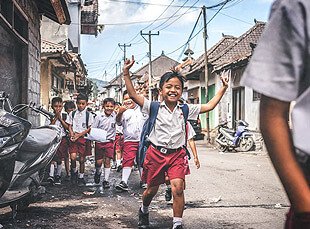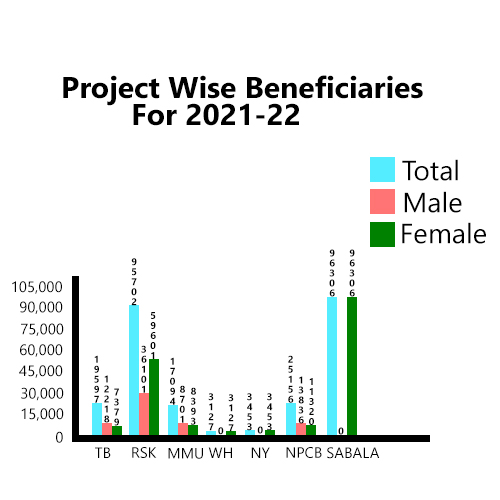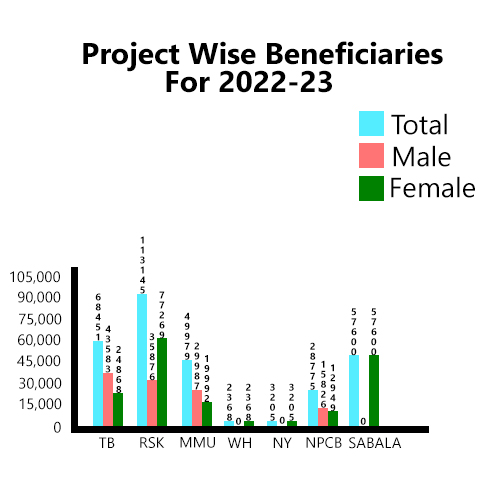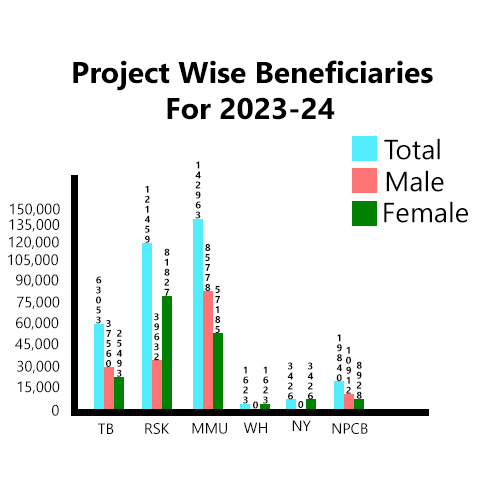
Link Worker Scheme
Link Worker Scheme
 The Link Workers Scheme is a community-centric, evidence-based initiative designed to address the challenges of HIV/AIDS in rural areas. By leveraging local resources, creating demand for services, and fostering a stigma-free environment, the scheme aims to improve the health and well-being of vulnerable populations while ensuring sustainable access to prevention, care, and support services.
The Link Workers Scheme is a community-centric, evidence-based initiative designed to address the challenges of HIV/AIDS in rural areas. By leveraging local resources, creating demand for services, and fostering a stigma-free environment, the scheme aims to improve the health and well-being of vulnerable populations while ensuring sustainable access to prevention, care, and support services.
Objectives
- Build a Rural Community Model - Address the complex needs of rural HIV prevention, care, and support in selected geographies by creating a sustainable community-based approach.
- Reach Vulnerable Populations - Provide HIV/AIDS prevention and care services to rural populations at risk in a non-stigmatized and enabling environment.
- Improve Access to Resources - Enhance access to information, commodities (e.g., condoms, needles/syringes), testing, and treatment services by collaborating with Targeted Intervention (TI) programs and government health facilities, ensuring no duplication of efforts.
- Facilitate Linkages to Social and Health Benefits - Connect vulnerable populations to social and health benefits offered by other government departments, aligning with local norms and regulations.
Features
Evidence-Based Approach
- Use scientific tools like broad mapping to identify high-risk rural areas and vulnerable groups.
- Conduct detailed situation needs assessments to tailor interventions effectively.
Demand Creation and Service Linkages
- Generate demand for HIV/AIDS-related services without creating new service delivery points.
- Link target populations to existing services for prevention, testing, and treatment.
Community-Driven Implementation
- Deploy highly motivated and trained community members as Cluster Link Workers (male or female) for clusters of villages.
- These workers act as bridges between the community and essential information, commodities, and services.
Stigma-Free Environment
Foster an enabling and stigma-free environment to ensure sustained access to HIV/AIDS information and services.
Interdepartmental Linkages
- Collaborate with ASHA volunteers, anganwadi workers, panchayat heads, and MNREGA officials to identify and address vulnerabilities.
- Build the capacity of ground-level stakeholders to support HIV/AIDS prevention and care efforts.
| Financial Year | Migrant | OVP (Orphan & Vulnerable Population) | FSW (Female Sex Workers) | Truckers | ICTC tested | Positive Patient | Budget |
|---|---|---|---|---|---|---|---|
| 2016 - 17 | 27729 | 20693 | 525 | 389 | 7343 | 23 | 4247950 |
| 2017 - 18 | 26554 | 18326 | 420 | 331 | 6627 | 35 | 5600000 |
| Total | 54282 | 39019 | 945 | 720 | 13970 | 58 | 9847950 |
Geographical Coverage – Block Wise
| SL | Purba Medinipur District | Hooghly district. |
|---|---|---|
| 1 | Haldia | Khanakul - I |
| 2 | Mahishadal | Khanakul - II |
| 3 | Sutahata | Arambagh |
| 4 | Nandigram I | Singur |
| 5 | Nandigram II | Goghat II |
| 6 | Chandipur | Haripal |
| 7 | Tamluk | Dhaniyakhali |
| 8 | Kolaghat | Pursura |
| 9 | Nandakumar | Srirampur-Uttarpara |
| 10 | Panskura | Chanditala - I |
| 11 | Patashpur I | Chanditala - II |
| 12 | Bhagwanpur I | Jangipara |
| 13 | Bhagwanpur II | Balagarh |
| 14 | Egra I | Polba Dadpur |
| 15 | Contai I | Pandua |
| 16 | Contai II | Chinsurah-Mogra |
| 17 | Contai III | |
| 18 | Ramnagar I |
Our Beneficiary

2021 To 2022 / Total Beneficiary

2022 To 2023 / Total Beneficiary

2023 To 2024 / Total Beneficiary
-
+858080Total Donations
-
+838580Projects Funded
-
+878580Happy People
-
+818580Our Volunteers
